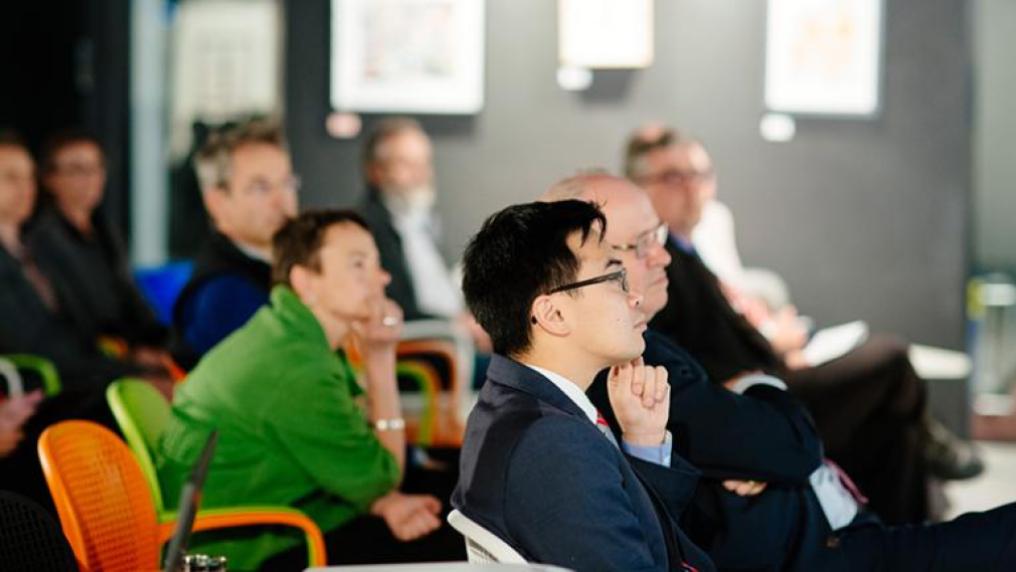RDR Network programs
The Risk, Disaster and Resilience (RDR) Network is committed to building safer communities and industries through innovative research with real-world impact.
Our programs
The alternative energy group conducts research on biofuels, wind and solar energy, desalination techniques, environment protection and wastewater treatment.
Our areas of focus include:
- fluid dynamics
- heat and mass transfer
- analytical chemistry
- power system communications
- environmental and water engineering.
The applied ecology and environmental change research group provides high-quality interdisciplinary scientific research that is relevant, practical and applicable. Our goal is to achieve environmentally sound solutions at the local, national and international level.
Key areas of focus include animal research behaviour, remote sensors, working with communities, and restoration works.
The built environment research program forges collaborations among disciplines with similar interests and among industry, alumni, and international partners. We facilitate advanced research in all aspects of sustainable built environment through:
- designing efficient buildings
- planning smart cities
- creating more liveable places
- adopting smart technologies
- managing construction projects
- life performance of construction materials and components.
The capacity building in health and wellbeing team conducts research into acute and chronic conditions, brain behaviour and cognition, identity, men’s health, wellbeing, women’s health and workforce development. This program is part of Victoria University's Clinical and Community Health and Wellbeing program.
The clinical and community health and wellbeing program enhances and promotes individual and community health and wellbeing, and our applied and translational research takes place in clinical environments, communities and workplaces. Our research encompasses cultural and community concerns within the broad themes of social equity and diversity.
The geotechnical, rock mechanics and pavement research group focuses on fundamental and applied research that builds knowledge to make civil infrastructures safer, more economical and sustainable.
The group consists of leading researchers who apply innovation and creativity across a broad range of applications. Our state-of-the-art testing facilities and numerical simulation tools allow us to conduct cutting-edge research that makes positive impacts on society and the environment in line with the UN’s Sustainable Development Goals.
Our expertise includes expansive soils, rock mechanics and engineering, hydraulic fracturing, recycled materials, and pavement testing.
The innovation, digitalisation and change-management group conducts research to meet the ever-changing demands of organisations due to disruptions from technology, society and culture. Responding to these challenges, we actively research to identify real-world solutions.
Our key areas of expertise include management information systems and the changing demands of organisations due to disruptions.
The preventing and encountering violent extremism research team develops and advances scientific knowledge about the human impact and causes of violent extremism. This program has an applied and translational focus that aims to have a positive social impact though building strong, safe, liveable and inclusive communities.
Collaboration is central to our approach, and we co-design and produce our research with our stakeholders to ensure it meets their needs. Key areas of expertise include countering violent extremism, counter terrorism, inclusive communities and racism.
The smart electronic systems research team is interested in developing new technologies that combine sensors, telecommunications and smart control algorithms to meet the ongoing requirements of the national and global industry in this information age.
Our key areas of expertise include drone control, advanced and intelligent control, remote sensing.
The smart energy research team:
- assist the modern power engineers’ work with end user applications and devices such as 'smart meters'
- develop strategies for grid design and operation and to address interconnection and intra-facing frameworks, which are networks within each individual substation of the grid such as generation, transmission, and distribution
- undertake research and development projects in novel methods to cut bushfire risk from powerlines.
We have key expertise in smart meters and networks, bushfire detection research and fire risk mitigation.
The systemic risk, transformation and decision making program specialises in collaborative end user-based research in which co-design, mutual learning and communication are central to the process.
We apply the inside out approach to develop solutions for systemic and strategic risks such as climate change and natural hazards in the areas of decision making, policy and practice.
The aim of the water supply, demand and security research is to address imbalance between water supply, demand and security of supply due to increasing population growth and urbanisation, degradation and overexploitation of natural resources.
We have expertise in climate change impacts, degradation and overexploitation of natural resources, environmental water quality, and coastal inundation.
